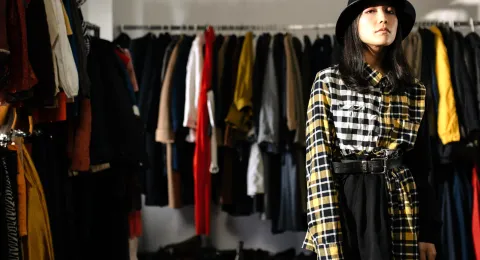Circular business, such as the use of recycled materials in clothes, may reduce negative impacts on the environment. However, it does not necessarily resolve the social challenges of the clothing industry, as Anna Härri’s recent environmental technology dissertation from LUT University reveals.
“The circular economy is designed to respond to environmental challenges – not social ones. In some cases, circular operating models may also create new problems especially in the Global South, where most clothes that also Finns wear are made,” Härri says.
Generally speaking, the Global South comprehends the so-called developing countries. Anna Härri prepared her dissertation in India, which is a key production country in the textile industry.
Clothing brands need to adopt sustainable practices
“Shifting to circular textile systems is not a guaranteed remedy to low wages and poor working conditions in the Global South. Workers, entrepreneurs and raw material producers may, in fact, find themselves in a worse position if Western countries reduce fashion consumption and raw material import,” Härri states.
According to her, clothing brands and national governments play a central role in ensuring that the transition is just.
“Brands must be proactive, pay their share of costs generated by new operating models, and compensate for harms to their production chain workers. Moreover, countries in the Global South must improve their social security networks and create opportunities for reskilling.”
How can a consumer support social justice in the clothing industry?
According to Härri, it is important for consumers to favor recycling and reuse, but social issues should be born in mind when making purchases. Consumers can support a more just clothing industry by demanding just actions from clothing brands and by championing more sustainable brands.
“You can very well purchase products made in India or elsewhere in the Global South, but in such cases, you should pay attention to the brand’s sustainability-related actions. There are good brands out there.”
In the textile industry, a circular economy refers to matters such as clothing reuse, recycled materials in clothing production, and the recycling of clothing waste. Moreover, it can mean improving the quality and extending the lifespan of clothes.
“We need to make a swift transition to a circular economy because we need to decrease negative impacts on the environment. The transition is still in its infancy, but it is likely to pick up pace in the coming years.”
The public examination of Anna Härri’s dissertation is on 23 August 2024.
More information
Doctoral researcher Anna Härri, tel. 0400 878 205, anna.harri@aalto.fi
Read the dissertation: Just transition to circular textile systems





